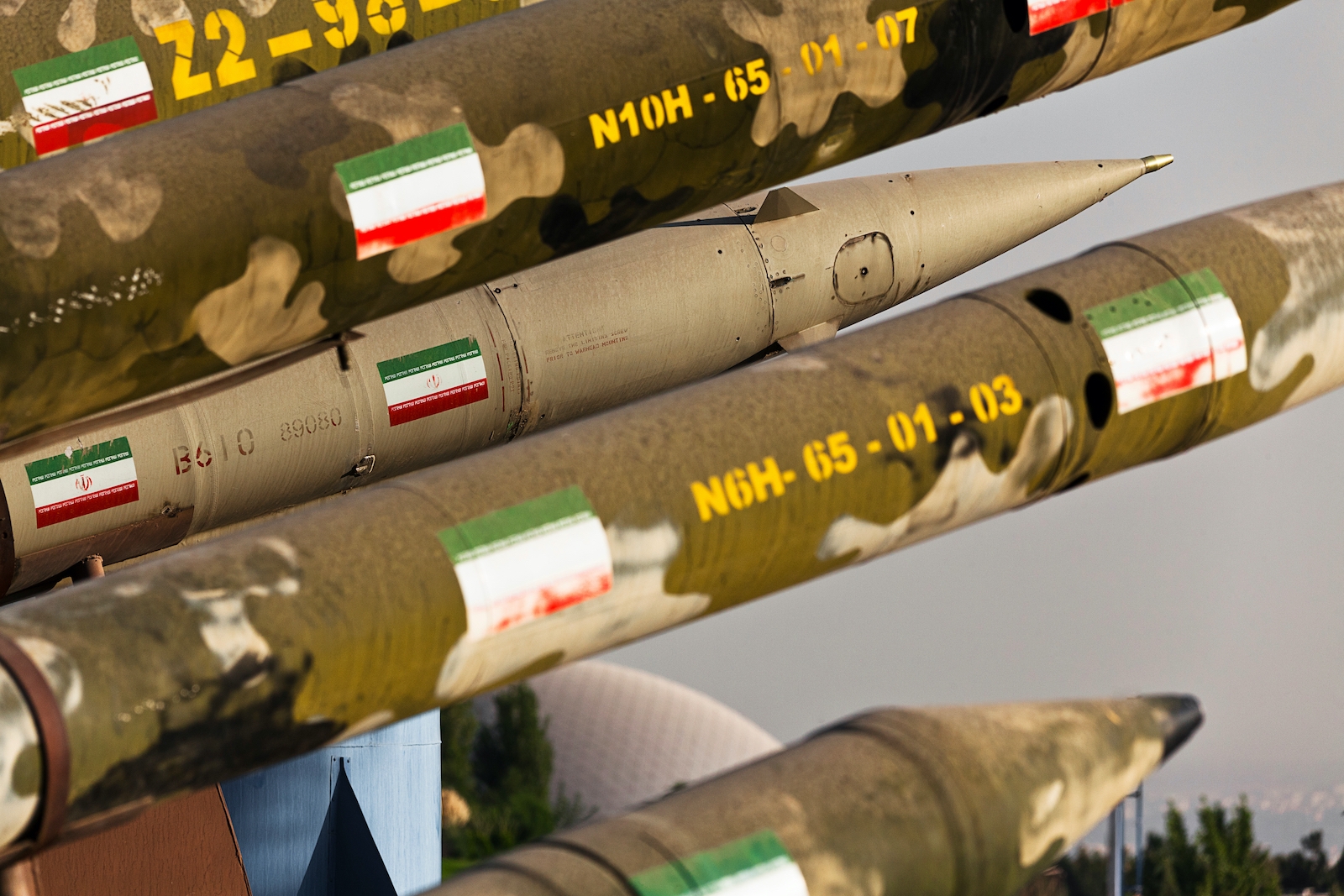
A Nuclear Iran will not Lead to an Arms Race
George Shultz, former U.S. Secretary of State, once said, “Proliferation begets proliferation.” The possession of nuclear weapons or nuclear capability by a rival state is a constant stimulus to other states to acquire them. It is often argued that possession of a nuclear capability by Iran would lead to a nuclear cascade in the region. Saudi Arabia, Egypt, and Turkey are likely to acquire nuclear technology if Iran is allowed to have sensitive nuclear technology – enrichment and reprocessing technology. This argument overlooks the international and domestic factors that point to the fact that the nuclear domino rarely falls.
Israel’s acquisition of nuclear weapons failed to bring about a nuclear arms race in the Middle East and Iran’s nuclear capability is also unlikely to have a domino effect in the region. Saudi Arabia, Egypt, and Turkey are often cited as likely to proliferate, but all of them either lack domestic capability or are bound by international factors that prevent them from acquiring nuclear capability.
Saudi Arabia is often cited as likely to acquire nuclear capability after the Iranian nuclear deal. Of the three most frequently identified potential proliferators, Riyadh is perhaps the most likely one. Saudi Arabia and Iran have a relatively antagonistic relationship. The Shiite mullahs who came to power in Iran’s Islamic revolution and the Sunni Saudi rulers have long been antagonistic toward each other. Saudi Arabia provided substantial financial assistance to Iraq during the Iran-Iraq war.
It opposed the United States’ invasion of Iraq in 2003, to remove Saddam Hussian because Riyadh saw Saddam as a counterbalance against Tehran and his removal would likely result in Iran’s domination of the region. Riyadh is against the Obama administration’s nuclear negotiation with Tehran because a nuclear Iran will become increasingly aggressive with its regional hegemony. Saudi King Salman did not attend the summit hosted by President Obama to build Arab support for Iran’s nuclear deal to demonstrate his displeasure. Saudi Arabia is threatening to acquire nuclear technology if Iran is allowed to have enrichment technology.
These concerns were further fueled when Prince Turki al-Faisal, the former head of Saudi intelligence warned, “I’ve always said whatever comes out of these talks, we will want the same” and “if Iran has the ability to enrich uranium to whatever level, it’s not just Saudi Arabia that’s going to ask for that.”
In 2008 Riyadh signed a Memorandum of Understanding with the United States in which it agreed not to pursue enrichment technology. Now if Riyadh wants to obtain enrichment technology it either has to build it domestically or get it from the international market.
Saudi Arabia has little nuclear infrastructure. For this reason, it is often suggested that were Saudi Arabia to attempt to obtain nuclear weapons, it would be more likely to obtain nuclear technology and perhaps even weapons outright from Pakistan. Saudi Arabia provided substantial funds to Pakistan’s nuclear weapons program. Recently, Pakistan adopted a neutral position in the Yemen crisis, as aligning with Saudi Arabia would have risked sectarian conflicts within Pakistan because of its minority Shi’ite population, approximately twenty percent. Pakistan also shares a border with Iran and it is unlikely to antagonize its neighbor with a Shi’ite population at home.
Pakistan is already under immense pressure to ensure the nonproliferation of its nuclear weapons after Pakistani nuclear scientist A Q Khan’s involvement in the transfer of nuclear technology to Iran, Libya, and North Korea. Pakistan’s nuclear program is India-centric and Islamabad has a strong strategic incentive not to transfer its weapons to Riyadh and avoid opening up a second front by becoming involved in the Saudi-Iranian conflict.
This means either Saudi Arabia has to build its own enrichment technology or buy it from somewhere else. In the first option, Riyadh has a rudimentary nuclear infrastructure and it might take two to three decades to build this technology. In the second option, it is hard for Saudi Arabia to buy enrichment technology from the international market. The Nuclear Suppliers Group (NSG) prohibits its 49 members from selling enrichment technology to a state that might risk the proliferation of nuclear weapons. It is evident that Riyadh is interested in obtaining nuclear weapons and any would-be nuclear-seller would be under intense international pressure not to sell this technology.
There are four states with enrichment technology outside the NSG: India, Pakistan, Israel, and North Korea. India is bidding for NSG membership and has always been proud of its impeccable record of not transferring its nuclear technology. New Delhi is highly unlikely to jeopardize its NSG membership for Saudi Arabia. Pakistan is also demanding an NSG waiver like India and has a strong interest in improving its international image already plagued by the A Q Khan revelations.
There are rumors in the media that Israel might transfer its nuclear weapons to Riyadh after Iran’s deal, but such prospects are highly unlikely. Israel maintains nuclear opacity and transferring its technology would further deteriorate its relations with the United States. At the 2015 NPT review conference, Washington again blocked the resolution for a Middle East Nuclear Weapons Free Zone (MENWFZ) that would have singled out Tele Aviv to give up its nuclear weapons. In the case of North Korea, there is no self-evident link between Riyadh and Pyongyang. North Korea is already under tight international scrutiny and any transfer would prompt intelligence interception and international action.
Egypt is another likely proliferator after the Iranian deal. If Egypt did little in response to Israel’s nuclear weapons, especially in the 1960s when the rivalry was particularly intense, it is not clear why it should be expected to respond more robustly to Iran now. Cairo’s main security concern is Israel’s nuclear weapons. It explored the nuclear weapons program of its own, but ultimately abandoned it. It realized that its security is better served by pursuing a MENWFZ instead of involving itself in a nuclear arms race. Relations between Tehran and Cairo gradually improved through the 1990s and there is little question that Egypt is extremely concerned about Iran’s pursuit of nuclear technology. Cairo’s main concern is Israel’s nuclear weapons and to counter that threat it is advocating for a MENWFZ.
In addition to Saudi Arabia and Egypt, Turkey is often cited as likely to proliferate in response to Iran. It does not have an outright antagonistic relationship with Iran and relations are presently more constructive than antagonistic. Ankara also has limited nuclear infrastructure and a strong security relationship with Washington as a NATO member. In the near term, this appears an exceptionally unlikely outcome for Ankara to acquire nuclear weapons.
Turkey certainly appears to be concerned by Iran’s nuclear capability, not because of its direct security or prestige ramifications for Ankara, but because of its potential to provoke regional conflict and instability. Turkey has a close relationship with the United States, as a member of NATO, with U.S. nuclear weapons on its soil, and possessing a formal nuclear security guarantee from the United States. Given Turkey’s not outright antagonistic relationship with Iran, its limited nuclear infrastructure, and still good alliance relationship with the United States, Ankara appears to be unlikely to acquire nuclear weapons in response to Iran.
There are strong chances that Iran and P5+1 will conclude a comprehensive nuclear deal in which Tehran is allowed to have limited enrichment technology with intrusive IAEA (International Atomic Energy Agency) inspections. If Iran violates the negotiated agreement and develops nuclear weapons there are ample chances that it would result in a nuclear arms race in the region. Iran’s nuclear program constrained by a nuclear deal with the international community is unlikely to cause a nuclear cascade in the region.

